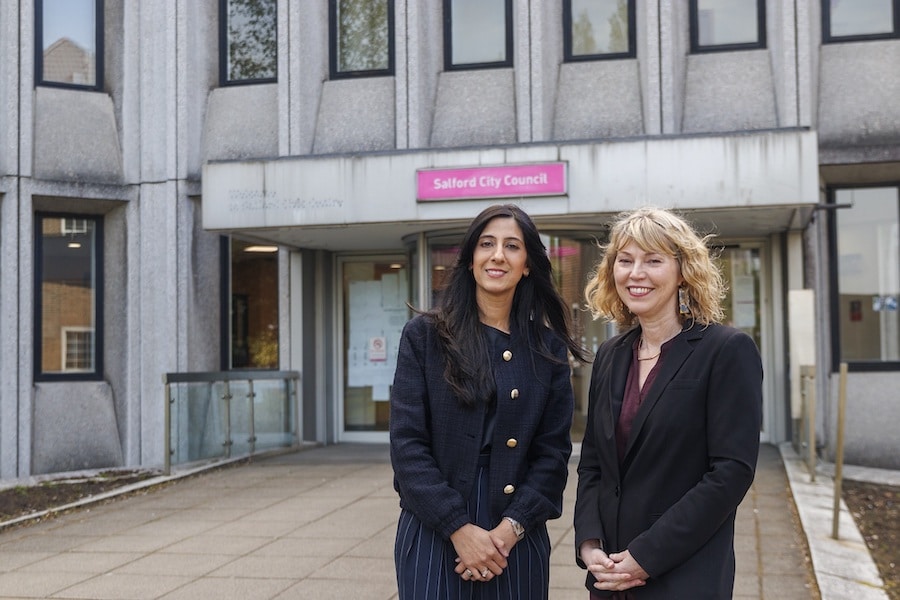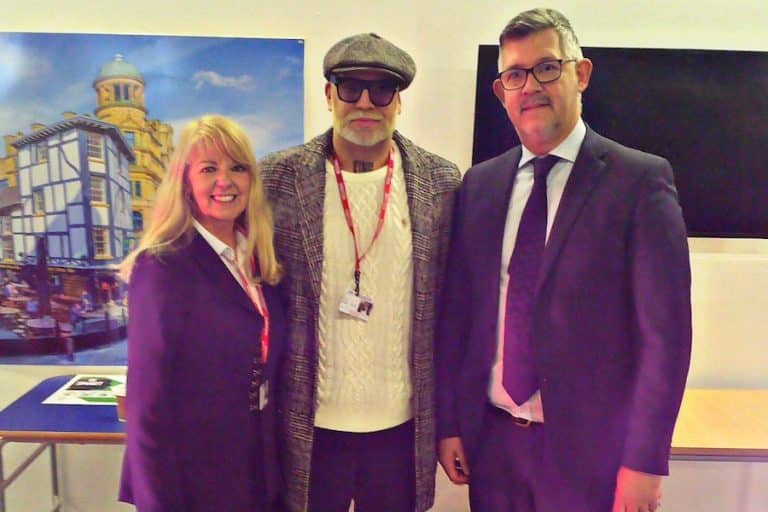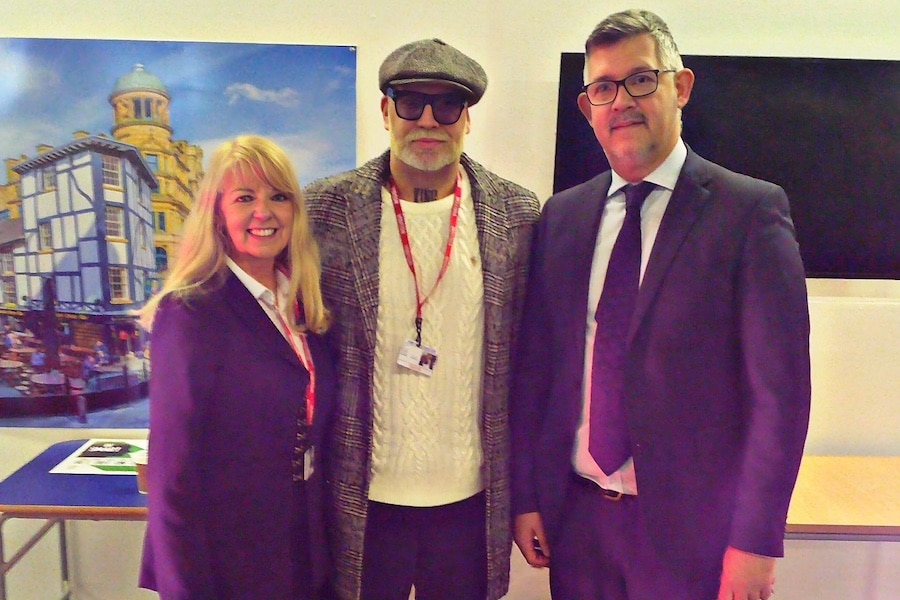Kids in this corner of Greater Manchester are facing unimaginable struggle – but there’s hope yet
- Written by Declan Carey
- Last updated 8 months ago
- City of Salford, People

Years of austerity and financial hardship has put families around the UK under pressure.
Councils around the country have faced having to cut key services as budgets become tighter, often leaving residents paying more in council tax.
In Salford, the situation has reached a critical level – the city’s population is growing, and the town hall is trying to help growing numbers of people living in poverty and facing homelessness.
Homelessness and poverty in Salford
Children are at the frontline of this hardship, with around a third of all children in the borough living in poverty, a figure which is expected to get worse.
The council’s children’s services team is a vital lifeline for many of these young people, offering help and support to give them the best chance of succeeding in life.
But in 2010 the service was slammed by Ofsted, with the town hall reprimanded for ‘significant weaknesses’ in safeguarding children, and an inspection describing the service as ‘performing poorly.’
Since then, the authority has turned things around by connecting with the communities it serves and adopting an uncompromising attitude to standards.
Salford’s Children Services
In January, it was rated ‘good’ overall, and was praised by Ofsted inspectors in a number of areas, but particularly for its work with care leavers.
The problems faced by those referred to children’s services in Salford are varied, and include domestic abuse, mental health issues, and drug misuse – or sometimes all of these things at once.
Sayma Khan started working at the council shortly after it was given a poor rating, and from being a frontline social worker she’s climbed the ladder to become director of children’s social care at the town hall.
She’s been part of a transformation which is helping to improve lives in what is the UK’s 18th most deprived local authority, and now she’s leading the charge to make things better still.
‘The whole approach has shifted’
Building trust with people has been essential to the turnaround, and that includes having staff born and bred in Salford who really know each neighbourhood and the communities living there.
Ms Khan told I Love MCR: “It’s about understanding that diversity in Salford, once you have that it’s much easier to get the best for children.
“Rather than doing things to families, we do things with families, asking them what they think they need support with – the whole approach has shifted.”
Latest Ofsted inspection
The latest Ofsted inspection found that Salford’s children’s services has a ‘strong’ leadership team, with a ‘relentless focus’ on making improvements.
The report added that children are supported by ‘skilled and dedicated workers’, and that corporate and political leaders at the council ‘listen carefully to children, care leavers and staff.’
Melissa Caslake isn’t a Salfordian, but she has been part of the council’s leadership team in children’s services over the last 12 months, adopting an “uncompromising” attitude towards keeping standards high.
The executive director said the team was given £114 million in the latest council budget, a figure which they have to spend creatively to ensure all areas of the service are supported.
She said one of the biggest challenges facing children’s services is the cost of commissioning external placements for children in care, which has “gone through the roof” due to inflation.
That, combined with the needs of young people becoming “ever more complicated” after the pandemic and mental health pressures on children, has left the service having to spend “significantly more” than it has done in the past.
The average cost of a residential placement for a child in Salford is £6,000 a week, Ms Caslake said, but some can be up to £15,000 per week.
With 50 children in residential care in Salford, that amounts to a significant bill for “a small number of children.”
A housing and homelessness crisis
National problems are also affecting on Salford’s children.
The city declared a housing and homelessness crisis this year, and families without a place to call home are presenting themselves to the council asking for help.
When they aren’t able to find a place to live themselves, they can be offered a place in temporary accommodation.
There are “significant numbers” of children in this situation in Salford, Ms Caslake said, and this has “gone up a lot in the last couple of years.”
This can cause many issues – a lack of space to play and do homework, a lack of cooking facilities, and being based a long distance from school, meaning children and parents have to get up earlier and spend longer travelling.
These problems create long-standing issues on Salford’s streets and in its communities, which are far away from the palace of Westminster in London where some say these matters ought to demand more attention.
Despite the challenges, children’s services in Salford has continued to invest, with £1.6 million pumped into its foster carers system, which saw an increase in people coming forward to be assessed and help young people.
The drive of the leadership team and hard work of staff on the ground has ultimately rescued a failing service, which is now in a better position to give Salford’s children a helping hand when they need it most.
It’s led to examples such as one teenager who arrived in the UK unaccompanied aged 15, and was helped by children’s services in Salford, who has learned English and is now studying at university to become a doctor.
We are always asking more what can we do?
But it’s clear that the work hasn’t stopped there.
Leaders in Salford’s children’s services team made clear that ‘good’ still leaves room for improvement.
And while the council was forced to make significant savings in its budget this year, to the tune of £5.9 million, they are confident that they can continue changing lives despite financial pressures.
Ms Caslake said: “We’re constantly setting expectations about ambition, about always asking what more can we do?
“If something was good, how do we get even better? Creating that culture at every level in the organisation is what we want.
“It’s like a stick of rock, it goes through the middle and it’s not all coming from us, everyone is buying into it and thinking what more can we do.
“That’s what gets you outstanding – and that’s what we’re aiming for.”
You can find out more about Salford Council by clicking here
- This article was last updated 8 months ago.
- It was first published on 3 June 2024 and is subject to be updated from time to time. Please refresh or return to see the latest version.
Did we miss something? Let us know: [email protected]
Want to be the first to receive all the latest news stories, what’s on and events from the heart of Manchester? Sign up here.
Manchester is a successful city, but many people suffer. I Love Manchester helps raise awareness and funds to help improve the lives and prospects of people across Greater Manchester – and we can’t do it without your help. So please support us with what you can so we can continue to spread the love. Thank you in advance!
An email you’ll love. Subscribe to our newsletter to get the latest news stories delivered direct to your inbox.
Got a story worth sharing?
What’s the story? We are all ears when it comes to positive news and inspiring stories. You can send story ideas to [email protected]
While we can’t guarantee to publish everything, we will always consider any enquiry or idea that promotes:
- Independent new openings
- Human interest
- Not-for-profit organisations
- Community Interest Companies (CiCs) and projects
- Charities and charitable initiatives
- Affordability and offers saving people over 20%
For anything else, don’t hesitate to get in touch with us about advertorials (from £350+VAT) and advertising opportunities: [email protected]

The Social Studio offers fun and friendship for all at Emmaus Mossley

Play ‘This Kind of Black’ returns to tell a vital Moss Side story




















